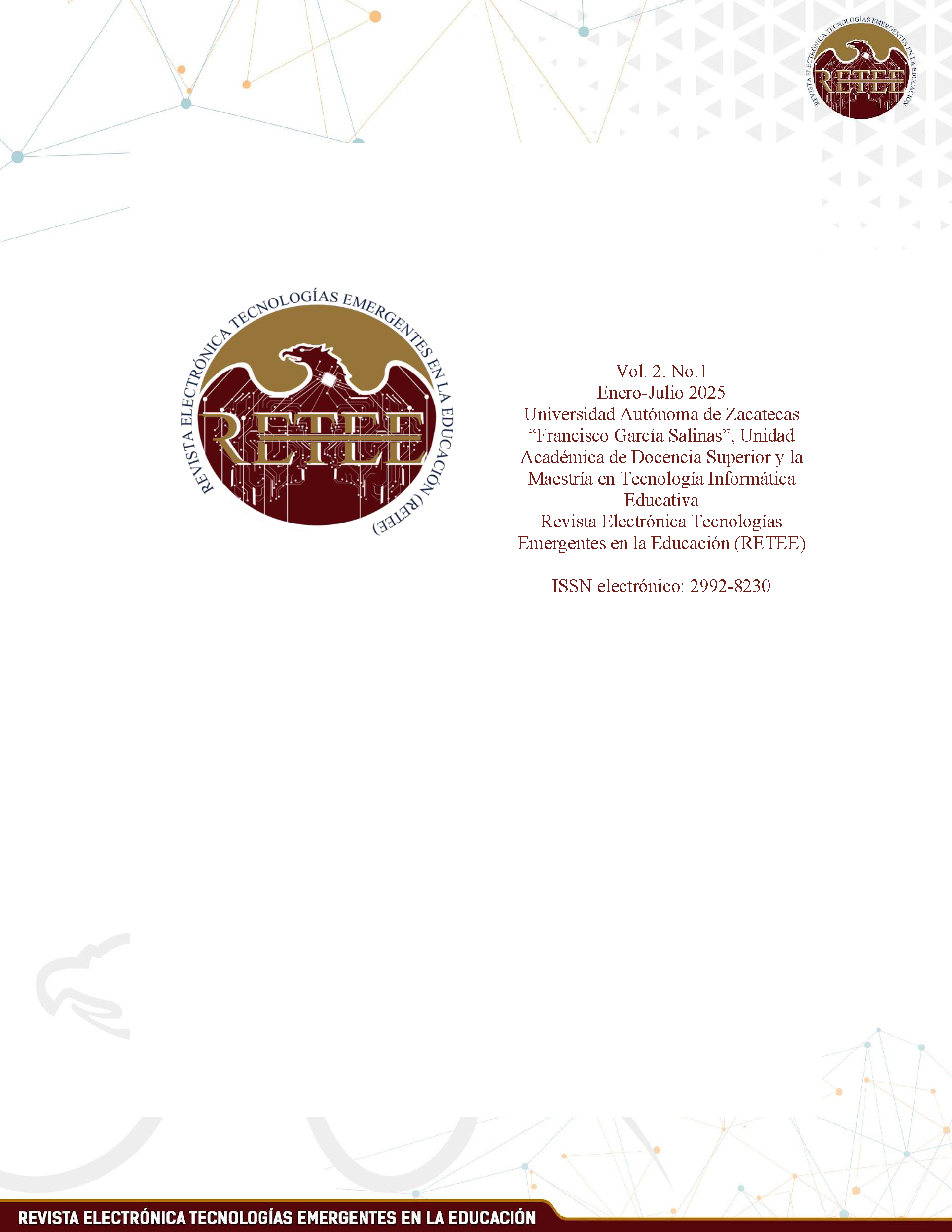- Inicio
- About
-
Políticas de la revista
Política de acceso abierto y costos Política de revisión por pares Política editorial Política antiplagio y conflicto de interés Política de ética editorial Política de autoarchivo y depósito de repositorios RETEE-DORA commitment Erratum and retraction policy Policy on the use of artificial intelligence (AI)
- Current
- Submissions
- Indexaciones
- Archives
Vol 2, No 1 (2025)
Issue Description
Volume 2, Number 1 of the Electronic Journal Emerging Technologies in Education (RETEE) (January-June 2025) brings together five contributions that examine the relationship between education, pedagogical innovation and emerging technologies from different perspectives and educational contexts.
The first article, "Technology in teaching mathematics to students with ASD/ADHD in Ecuador and Spain", analyses the impact of the use of technological resources in teaching mathematics to students with autism spectrum disorder and attention deficit hyperactivity disorder. Based on a comparative approach between Ecuador and Spain, it identifies inclusive methodologies that favour motivation, conceptual understanding and accessibility, underlining the relevance of designing differentiated strategies supported by digital tools.
Secondly, "Digital competences in upper secondary school students" addresses the importance of digital literacy in high school students, highlighting the competences needed to develop in ICT-mediated academic environments. The study presents findings on the areas in which students show greater mastery and those in which they are still lacking, making it possible to propose lines of action aimed at strengthening comprehensive training in digital competences.
The third article, "The systematisation of teaching students who are behind in literacy", examines pedagogical strategies to support students who face difficulties in basic literacy processes. Through a systematic approach, it reflects on the need to implement innovative methodologies and technological resources that reduce learning gaps and enhance educational inclusion at the elementary and middle school levels.
The fourth study, "Research skills in virtual learning environments at the undergraduate level: an analysis", focuses on the development of research skills in undergraduate students working on virtual platforms. It highlights the benefits of digital modalities for the strengthening of autonomy, the search for scientific information and academic production, while pointing out challenges related to self-regulation, research ethics and the evaluation of information.
Finally, the volume closes with "Generative Artificial Intelligence in the classroom: ally or threat to the teaching of mathematics?", a critical analysis of the incorporation of artificial intelligence tools such as ChatGPT, Gemini or DeepSeek in the teaching of mathematics. The article problematises both the pedagogical benefits - such as the personalisation of learning and immediate feedback - and the ethical and academic risks, such as the loss of critical thinking or technological dependence. The paper concludes that the integration of AI in mathematics education must be ethically, critically and pedagogically grounded, with a central and irreplaceable role of the teacher as a mediator of knowledge.
Overall, this issue of RETEE offers a pluralistic overview of educational innovation, from attention to students with specific needs to digital literacy, the systematisation of teaching, the promotion of research in virtual environments and critical reflection on emerging technologies in the classroom.

